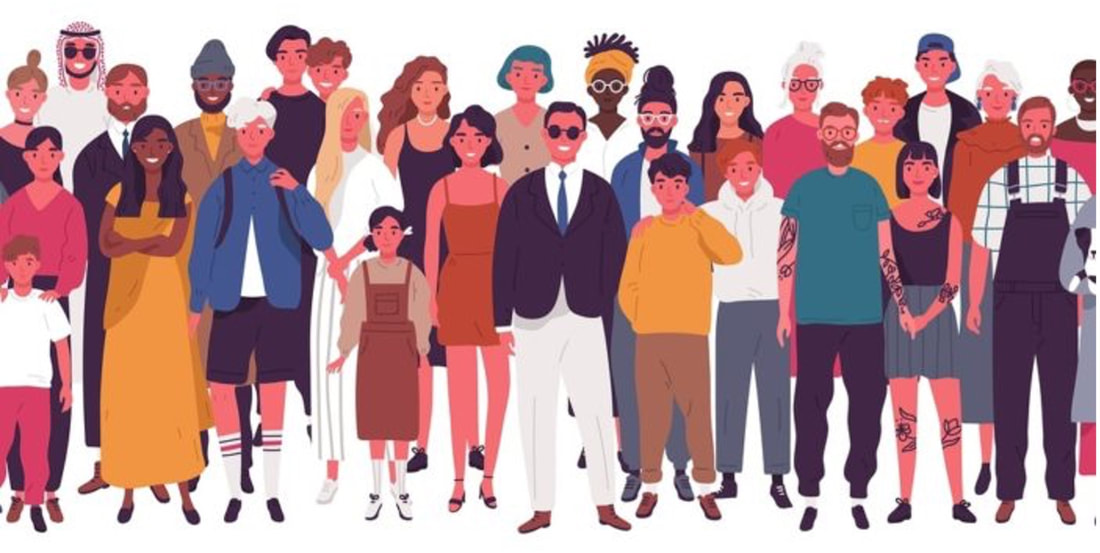Following the last I-DEEL blog post (by Samantha), I’d like to continue the conversation about biases we see in academia (and elsewhere). I am glad to see this issue getting attention, especially because discrimination hits too close to home. I am even happier that I am part of a lab that is particularly open to this conversation, discussing what we can do through equity, diversity, and inclusion initiatives. Fostering an environment in which everyone feels comfortable is, after all, vital. However, is it enough to ensure our workplace is a safe place for all, if not all can get here?
Academia is full of people studying or working in a country they were not born or raised in. Australia is similar, as around half of its citizens’ parents were born elsewhere, making it a place filled with distinct cultures. However, the diversity in academia and in Australia ends up being superficial: the more powerful a position is (socially and professionally), the more likely it is to be filled by people of a certain phenotype and background (e.g. cis heterosexual white men from rich countries). This is a pattern seen everywhere, including in the country where I’m from (Brazil). This, in my opinion, ends up being the true root of the problem. Is there anything we can do about it?
First, research centres, universities, and PIs hold substantial power as they are responsible for hiring and recruiting new professors, researchers, and postgraduate students. Instead of relying on “objective” metrics (e.g. number of papers, journal impact factor, university rankings) to award those that have “done more/better”, they could consider candidates’ diverse backgrounds (in a meaningful and positive way). The metrics currently used to assess performance are not only problematic on their own (do they really reflect advances in science?), but they are also related to one’s phenotype and background for multiple reasons. Being born in a non-English-speaking country already represents a major constraint to people’s productivity, as they first need to dominate the language before being able to read the literature and write their research manuscripts. Thus, creating new ways to assess academics’ journeys that minimises bias is essential to build a diversity community.
Junior scientists are not exempt from responsibility either. Biases can occur when networking or reviewing manuscripts, even if unconscious. For instance, Fox et al. (2023) performed randomised trials in which they compared single- and double-blind reviews (i.e. reviewers did or didn’t have access to author information, respectively) in the journal Functional Ecology, showing that authors from developed countries received better review scores in single-blind reviews than in double-blind reviews. In other words, authors from rich countries were favoured by reviewers when their information was disclosed. Fox et al. (2023) also showed that editors, who can always see the authors’ information, sent manuscripts from developed countries’ authors for review much more often than manuscripts from others. These results were not because of language differences, as authors from both English-speaking and non-English-speaking developed countries were equally favoured. This means that even individuals with less power can perpetuate — or break — cycles of biased decisions.
Promoting diversity is a difficult task: there is no magical solution for the bias we see in academia. However, it is imperative to improve the current situation. I do not believe it should be a contest about who deserves more pity, but I also do not think we should ignore the barriers imposed on minorities and the clear advantages given to already privileged groups. It might seem unfair to deviate from a “pure meritocratic system” to seek alternatives, but meritocracy is an illusion when society is so unequal. If all of us could have the same opportunities that a rich, white British man like Charles Darwin had, perhaps more of us could advance science as much as he did.
References:
Fox, C.W., Meyer, J. & Aimé, E. (2023). Double-blind peer review affects reviewer ratings and editor decisions at an ecology journal. Functional Ecology, 1–14.


 RSS Feed
RSS Feed